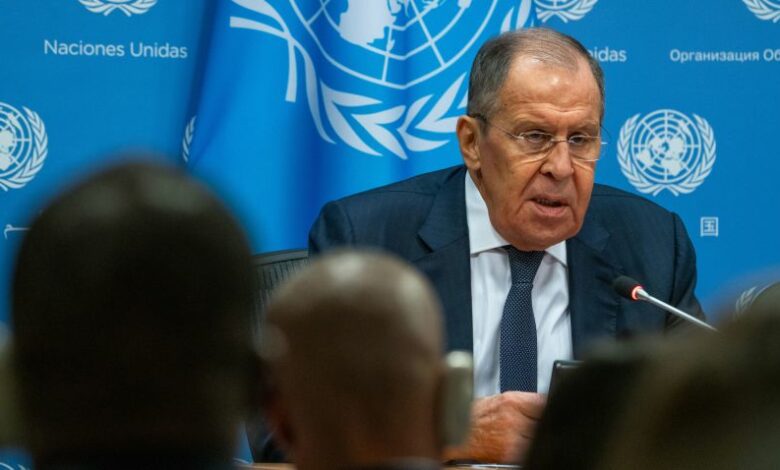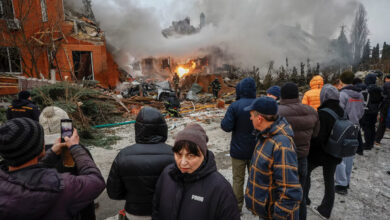
“In the speeches of many speakers who spoke before me, the idea was already voiced that our common planet is undergoing irreversible changes, and a new world order is being born before our eyes,” Lavrov said in his address to fellow member states.
“The contours of the future are being created in the struggle between the world majority, who advocate a more equitable distribution of global wealth and civilizational diversity, and between those few who use neocolonial methods of subjugation to maintain their elusive dominance.”
Lavrov would not have been the first this week to argue that outdated global governance structures are hampering momentum toward climate and economic justice. But his focus was on Ukraine’s Western backers and NATO – a mutual defense organization formed in the aftermath of World War II to defend Western nations from the Soviet Union.
As Russia’s war in Ukraine grinds on and Western allies continue to funnel military assistance to Kyiv, Lavrov warned on Saturday that he considered the US and UK and others to be “directly at war with us.”
“We can call this a hybrid war but that doesn’t change the reality,” Lavrov told journalists, adding, “They are effectively engaged in hostilities with us using the Ukrainians as fodder.”
Lavrov dismissed a peace framework proposed by Ukrainian President Volodymyr Zelensky as “not feasible.”
The plan does not contemplate ceding Ukrainian territory to Russia or abandoning Kyiv’s efforts to join the North Atlantic Treaty Organization – two sticking points for Moscow.
The Russian Foreign Minister also shut down the possibility of Russia returning to the Black Sea grain deal, saying the Kremlin felt it had been deceived.
“The main reason why we left this deal and it ceased to exist is that everything that was promised to us turned out to be a deception,” Lavrov said.
Russia withdrew from the UN-brokered deal in July, after saying for some time that it had been prevented from adequately exporting its own foodstuffs. The now-collapsed deal had allowed Ukraine to export much-needed grain by sea, with ships bypassing a Russian blockade in order to reach global markets.
The UN, created in the 1940s, does reflect a previous era, with the five permanent members of the UN Security Council wielding a disproportionate amount of power in the organization. But as one of those so-called P5 countries, Russia has also significantly benefited from the existing structure, notably vetoing resolutions about its war in Ukraine.
Among the many proposed reforms to the UN from various corners, Ukraine has said Russia should be stripped of its Security Council veto power and expelled from the organization for breaching a fundamental tenet of the UN – violating the territorial sovereignty of a fellow member-state.
Reporting contributed by CNN’s Richard Roth in New York.




